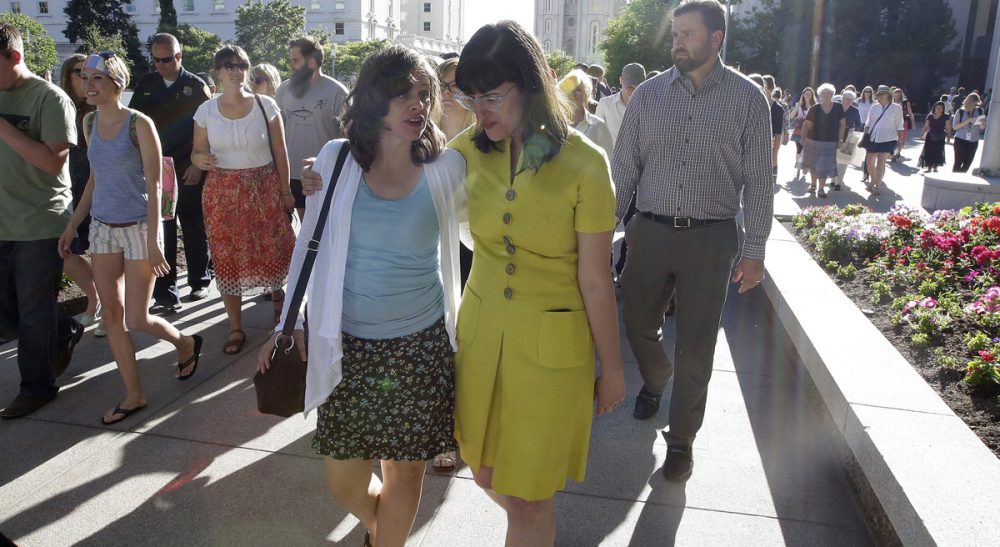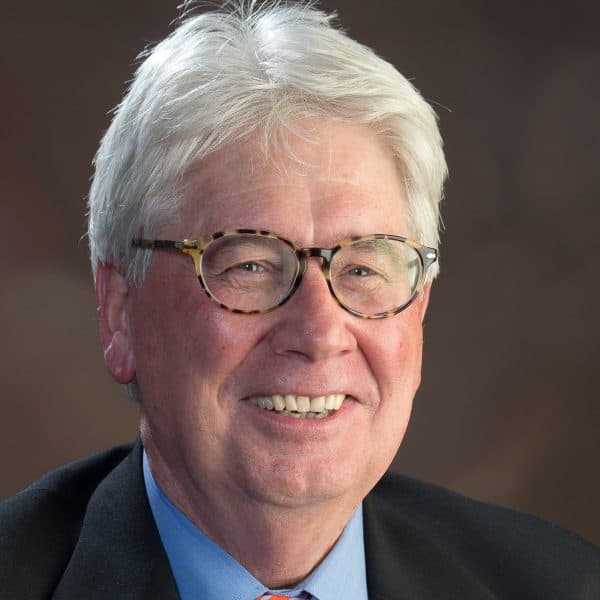Advertisement
An Excommunication, And The Future Of The Church Of Jesus Christ Of Latter-day Saints

With the recent excommunication of Kate Kelly, a civil rights attorney and founder of the activist group Ordain Women (OW), the American-born Church of Jesus Christ of Latter-day Saints is at an important crossroad in its 184-year history. Will it secure its place in the religious mainstream? Or will it revert to isolating practices that provoke outsiders to brand Mormonism an overgrown cult and some insiders to leave?
“Right now, it feels like we’ve plunged back to Spanish Inquisition,” observed one engaged Mormon mother, who asked not to be identified, fearing that her comments might create problems with local church leaders and friends. “Am I to tell my sixth-generation Latter-day Saint daughters that the only way for them to survive in the church of their heritage is to sit down and shut up?”
Will [the church] secure its place in the religious mainstream? Or will it revert to isolating practices that provoke outsiders to brand Mormonism an overgrown cult and some insiders to leave?
The mother who asked for anonymity is not alone in her fears. The Salt Lake Tribune’s Peggy Fletcher Stack, a journalist respected for her incisive reporting on Mormonism, reported that fear of retribution drove “five of the 350 people profiled on OW’s website” to delete their profiles, and 175 to submit new ones. Because they supported their daughter, Kelly’s parents in Utah may no longer enter Mormon temples, a privilege available only to faithful members who possess written recommends issued by local leaders.
Despite its refusal to ordain women, the church aggressively promotes those that work within the system. One of them is Sheri Dew, a never-married former general leader in the Relief Society, the church’s once powerful women’s organization. Dew, who opposes Ordain Women and is chief executive officer of the church-owned Deseret Book, has been held up as a role model for Mormon women.
Another Mormon woman embraced by the church is Laurel Thatcher Ulrich, the Pulitzer Prize-winning Harvard historian, who was denied an invitation to address a 1992 women’s conference at Brigham Young University because of her feminist inclinations. A dozen years later, times had changed enough that Ulrich was enthusiastically welcomed at the school. Today, she practically enjoys living saint status because of her professional accomplishments and faithfulness to the gospel.
But even Ulrich has registered a shift in the church’s treatment of women. In an interview with the Boston Globe in April, Ulrich recalled that women in the church had more authority before the 1970s, when relatively independent women’s organizations within the church were virtually eliminated. “It never occurred to me that I wasn’t equal,” she said.
Perceptions that Kelly was leading believers astray may have been her biggest problem. Kelly literally led the faithful — as well as news crews — right up to the front steps of the historic Tabernacle in Salt Lake City, seeking entry to the semi-annual, male-only general priesthood conference taking place inside.
There are precedents for her excommunication. In 1979, when the church opposed the Equal Rights Amendment, Sonia Johnson’s vehement response (encouraging boycotts of missionaries and publicly condemning the church’s position) led to her excommunication. In 1995, so did Janice Allred’s refusal to stop teaching and writing about praying to “Mother in Heaven.”
The drama provoked a furious uproar on the so-called Bloggernacle, the sprawling and very active worldwide network of Mormon bloggers and readers. “Frankly, Kate Kelly appears to be insincere in her testimony even as she preaches otherwise. Her objections brought personal recognition and fame. That seems to be her main motivation now,” wrote Susan Lambourne Stevenson, a fifth-generation Mormon from Holladay, Utah. She’s likely not alone in her sentiment. A recent Pew research study found that 90 percent of Mormon women in the United States oppose ordaining women.
The church has quietly sought input for a program aimed at persuading its disenfranchised gay members to return. The official message: “The Lord loves you just as you are. There’s room for you at church this Sunday and every day.”
Not all Mormon women condemn Kate Kelly, however. A faithful young woman, a returned missionary, wrote, “Sister Kelly’s excommunication conveys clear condescending messages about conformity and intolerance.” Another woman wrote, “If there’s no room for Kate Kelly, there’s probably no place for me.”
There are hopeful signs that the church is listening and responding to the concerns of the disenchanted, among them gay activists who fear becoming targets for discipline or excommunication. (In spite of its acknowledgement, in 2006, that same sex marriage is constitutional, the church officially opposes same sex marriage laws.) The church has quietly sought input for a program aimed at persuading its disenfranchised gay members to return. The official message: “The Lord loves you just as you are. There’s room for you at church this Sunday and every day.” The church will continue to encourage, but not require, celibacy among its gay adherents.
Just this week, Mormon leaders in Cambridge, Mass., a region known for initiating innovations within the church, invited members to participate in “an open discussion…to understand the issues…as a prelude to…developing practical steps…to address the issues in productive ways.” The invitation was signed by the senior most male and female leaders of the Cambridge Stake, the equivalent of a Roman Catholic archdiocese.
The church found itself at similar crossroad in the 1960s. It took until 1978 to end the de-facto doctrine forbidding the ordination of black men. Since then, the church has consigned the former practice to the dung heap of misbegotten teachings. Kate Kelly and her supporters pray that the church’s current policy against the ordination of women joins it there.
Related:
